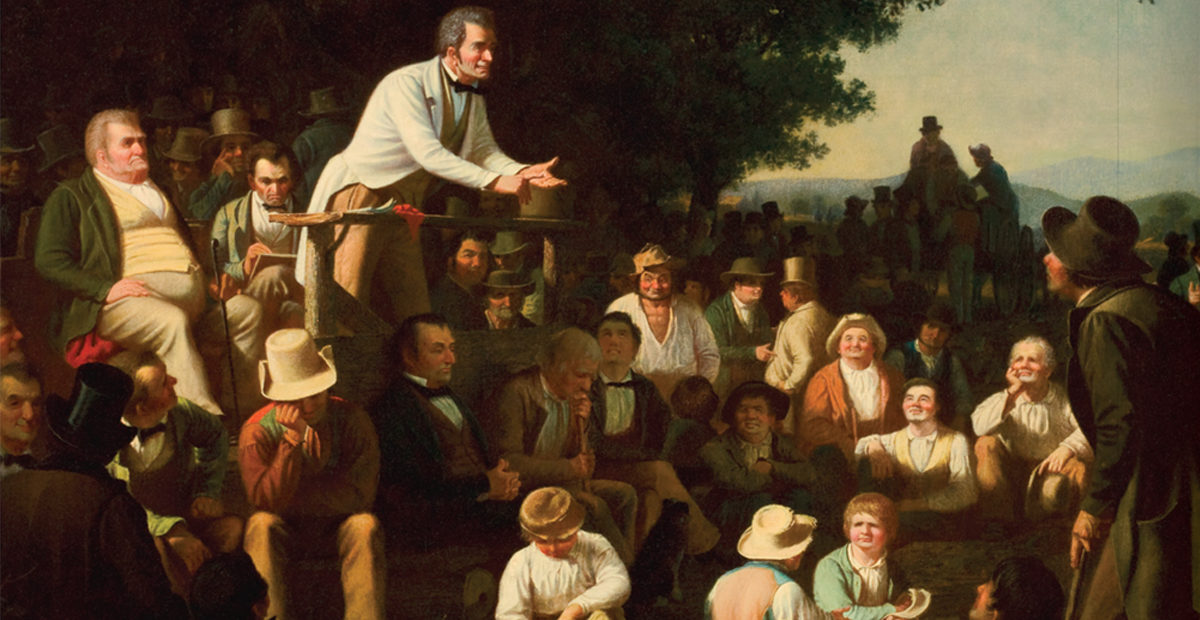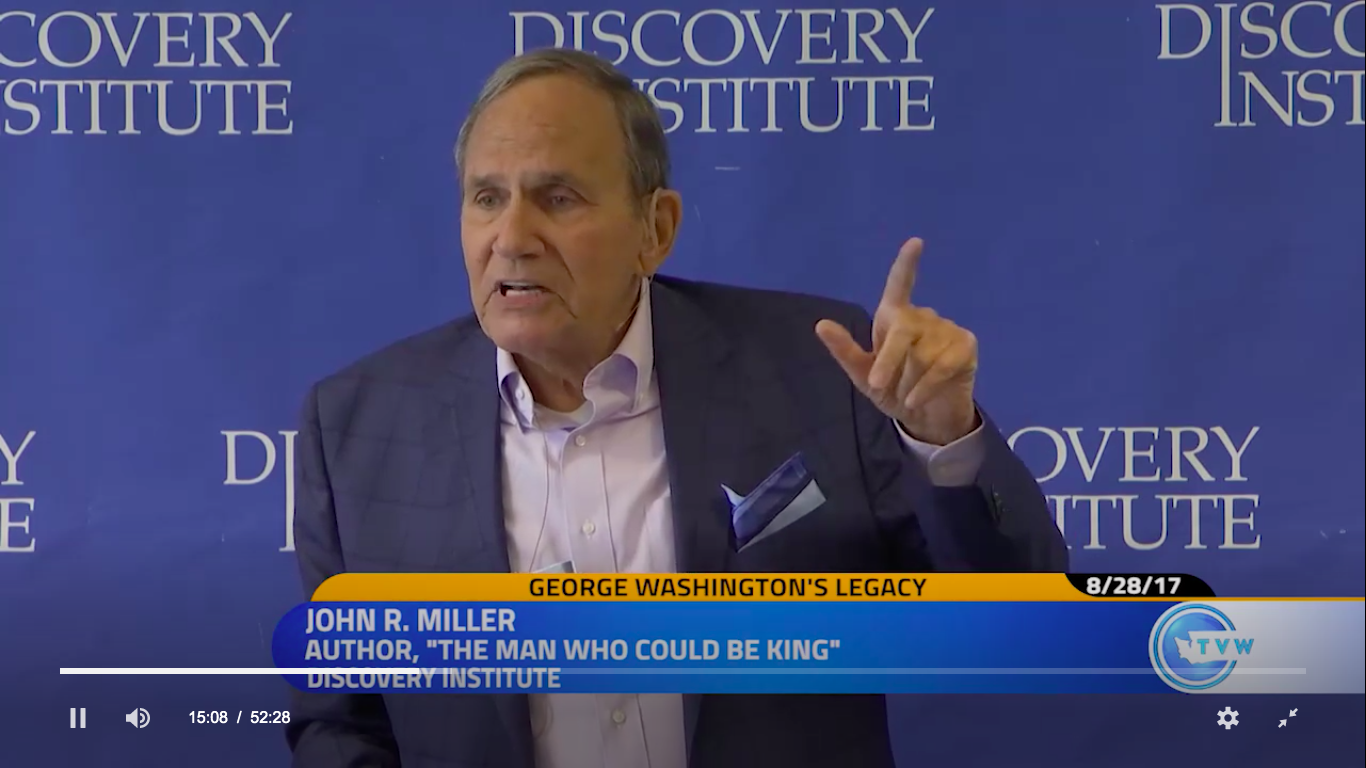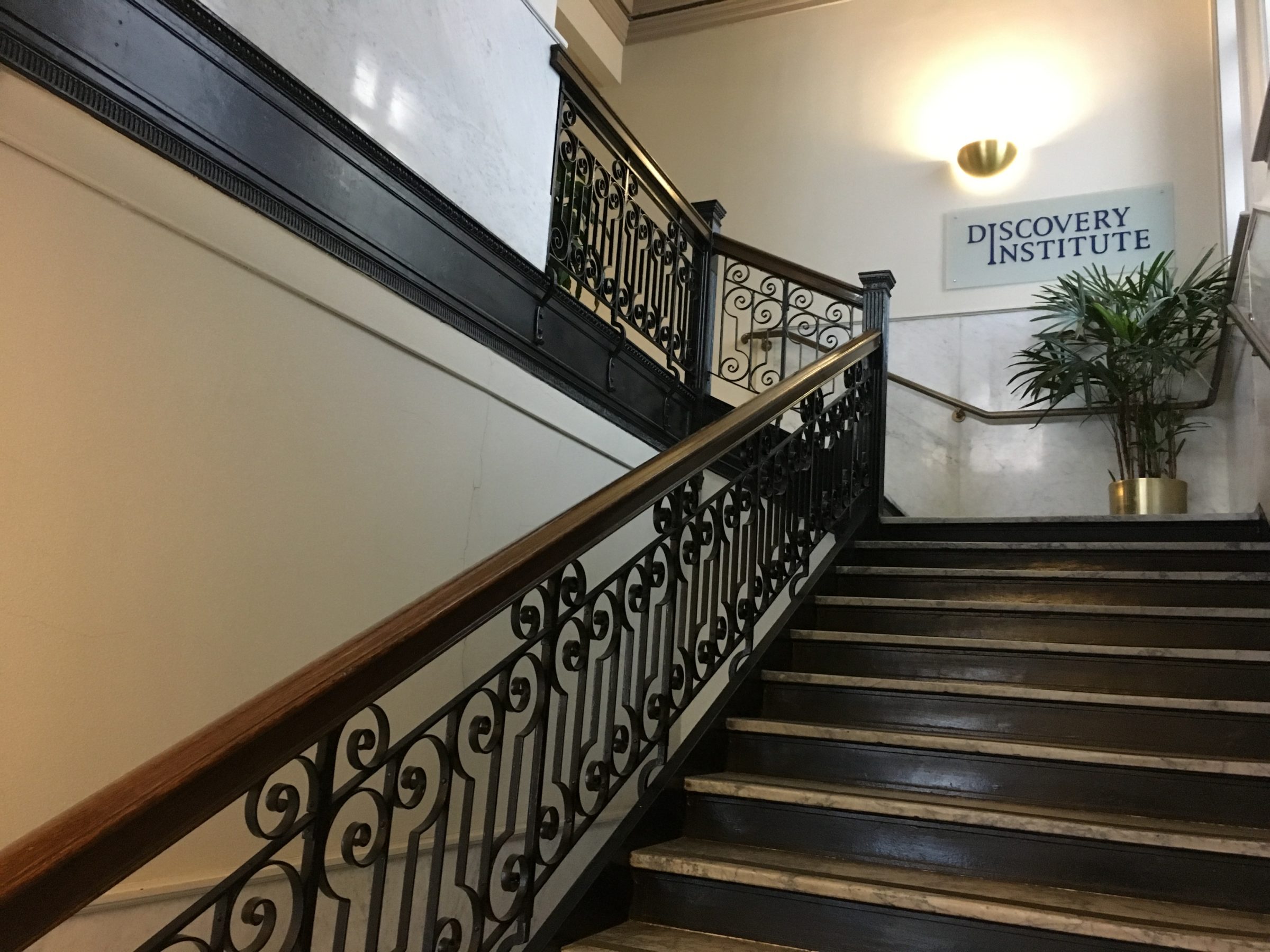


Is Democracy in the United States Salvageable?
Book Review: “Politicians” By Bruce Chapman
There may be one or two Americans left in the country who don’t know that we are currently living in an anti-Establishment, anti-professional, anti-politician era. Nationally we have voted someone into the Presidency whose primary claim to high office is that he has never held office. (In my own state, we have had a smaller version of the exact same phenomenon.) In virtually every Congressional and state-level campaign beyond the Presidential elections, we have candidates (including incumbents) engaged in an ever-escalating rhetorical battle to claim the low ground of experience. In Politicians: The Worst Kind of People to Run the Government, Except for all the Others, Bruce K. Chapman argues that this disdain for long-serving public servants has to stop. Keep reading.

The Man Who Could Be King
This lecture was recorded as part of Discovery Institute’s Gorton Series Lecture. Former U.S. Congressman John R. Miller discusses his new book The Man Who Could Be King, a historical novel about George Washington’s struggle over whether to heed the call of his officers to become king. Archived August 28, 5:00 pm Event Page at TVW

More Than a Think Tank
Interview with David Berlinski on the Devil’s Delusion
Bruce Chapman interviews David Berlinski. They discuss the fallacies and logical inconsistencies of darwinists, the impact natural selection had on Nazism, and the close-mindedness of the evolutionists in the academic sphere.
Signature in the Cell – Book Release Party
Dr. Stephen Meyer lectures on his book Signature in the Cell in which he argues that the information in DNA and the query of the origin of life points to an intelligent source. The book came out on the bicentennial of Darwin’s birth and and the one hundred and fiftieth anniversary of On the Origin of Species.
10 Big Lies About America
McNaughton Fellows Lecture by Michael Medved regarding his new book 10 Big Lies About America. He speaks about two things regarding his book: (1) Why he wrote the book. (2) What has surprised him since the book came out.
Read More ›Pres. Bruce Chapman – Commenting on the Census
Special Report with Bret Baier. President of Discovery Institute and former census director, Bruce Chapman condemns the new strategies of taking the census as laid out by Pres. Obama and his administration. Read More ›
Pres. Bruce Chapman on the Census Change
President of the Discovery Institute, Bruce Chapman, answers two main questions on Fox News regarding the census: what historically has the strategy of the census been and its implications, and why would the Obama administration want to change the format. Listen in to hear his answers. Read More ›